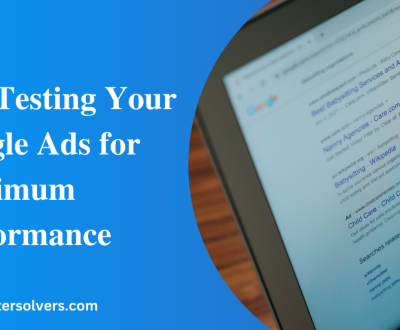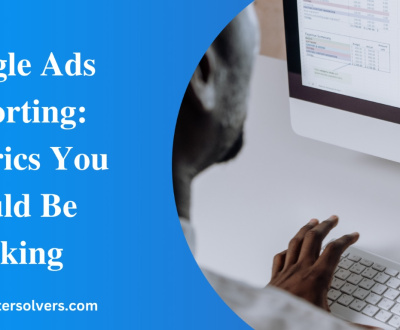Google Ads Bidding Strategies You Need to Know
Introduction
Google Ads is an effective way to promote your business and reach out to potential customers. However, to get the most out of your ad campaigns, you need to understand the various bidding strategies available and how to use them effectively. Bid management is the cornerstone of your Google Ads success, and in this article, we’ll walk you through the essential bidding strategies you need to know.
What are Google Ads Bidding Strategies?
Google Ads bidding strategies refer to the different ways you can bid on your ad campaigns. Depending on your advertising goals, you can choose from various bidding options that align with your business objectives. The bidding strategies determine how much you pay for each click or impression, and they can have a significant impact on your ad performance.
1. Manual CPC Bidding
Manual CPC bidding is the most popular bidding strategy used by advertisers. In this method, you set the maximum amount you’re willing to pay for each click on your ads. The bidding is entirely manual, and you need to monitor and adjust your bids regularly to ensure optimal performance. This bidding strategy offers you complete control over your bids, and you can make changes to your bids based on your campaign’s performance.
2. Target CPA Bidding
Target CPA (Cost per Acquisition) bidding is an automated bidding strategy that optimizes your bids to get more conversions. In this method, you set a target cost per acquisition, and Google Ads automatically adjusts your bids to achieve that goal. This bidding strategy is suitable for businesses that have specific conversion goals and want to optimize their ad campaigns to achieve those goals.
3. Target ROAS Bidding
Target ROAS (Return on Ad Spend) bidding is another automated bidding strategy that optimizes your bids based on the return on ad spend. In this method, you set a target ROAS, and Google Ads automatically adjusts your bids to achieve that goal. This bidding strategy is suitable for businesses that want to maximize their ad spend and get the most out of their advertising budget.
4. Enhanced CPC Bidding
Enhanced CPC (Cost per Click) bidding is a bidding strategy that combines manual and automated bidding. In this method, you set your maximum bid, and Google Ads automatically adjusts your bids in real-time to maximize your ad performance. Enhanced CPC bidding is ideal for businesses that want to maintain control over their bids while leveraging Google’s automation features.
Best Practices for Google Ads Bidding Strategies
To make the most out of your Google Ads bidding strategies, you need to follow these best practices:
1. Define your Advertising Goals
Before choosing a bidding strategy, you need to define your advertising goals. What do you want to achieve with your ad campaigns? Are you looking to generate leads, increase website traffic, or boost sales? Once you define your goals, accordingly you can select your bidding strategy.
2. Choose the Right Bidding Strategy
Once you define your advertising goals, you need to choose the bidding strategy that aligns with your objectives. Each bidding strategy has its advantages and disadvantages, and you need to select the one that fits your business needs.
3. Monitor Your Bids Regularly
Bidding on Google Ads is an ongoing process, and you need to monitor your bids regularly to ensure optimal performance. Keep an eye on your campaign’s metrics, such as click-through rates, conversion rates, and cost per click, and adjust your bids accordingly.
4. Test Multiple Bidding Strategies
To find the best bidding strategy for your business, you need to test multiple strategies and see which one works best for you. Run A/B tests with different bidding strategies and compare their performance to identify the most effective one.
5. Set Realistic Budgets
Setting realistic budgets is crucial for the success of your ad campaigns. Ensure that your bids are aligned with your advertising goals and budget constraints. Avoid overspending on bids that may not provide the expected returns on investment.
FAQs about Google Ads Bidding Strategies
1. What is the best bidding strategy for beginners?
Manual CPC bidding is the best bidding strategy for beginners as it offers complete control over your bids and allows you to monitor and adjust your bids regularly.
2. What is the difference between Target CPA and Target ROAS bidding?
Target CPA bidding optimizes your bids to achieve a specific cost per acquisition, while Target ROAS bidding optimizes your bids to achieve a specific return on ad spend.
3. What is Enhanced CPC bidding?
Enhanced CPC bidding is a bidding strategy that combines manual and automated bidding, allowing you to set your maximum bid while leveraging Google’s automation features.
Conclusion
Google Ads bidding strategies play a vital role in the success of your ad campaigns. By choosing the right bidding strategy, monitoring your bids regularly, and testing multiple strategies, you can optimize your ad performance and drive more traffic to your website. Whether you’re a beginner or an experienced advertiser, understanding the various bidding strategies available is crucial for your Google Ads success. Incorporate these bidding strategies into your ad campaigns and see your business grow!
The author is the owner and admin of the blog MasterSolvers.com. He is an Engineer by Profession, Designer, Developer, and Internet Marketer by Choice. He loves to read and write about SEO and Latest Tips and Tricks for Digital Marketing.
About us and this blog
We are a digital marketing company with a focus on helping our customers achieve great results across several key areas.
Request a free quote
We offer professional SEO services that help websites increase their organic search score drastically in order to compete for the highest rankings even when it comes to highly competitive keywords.











